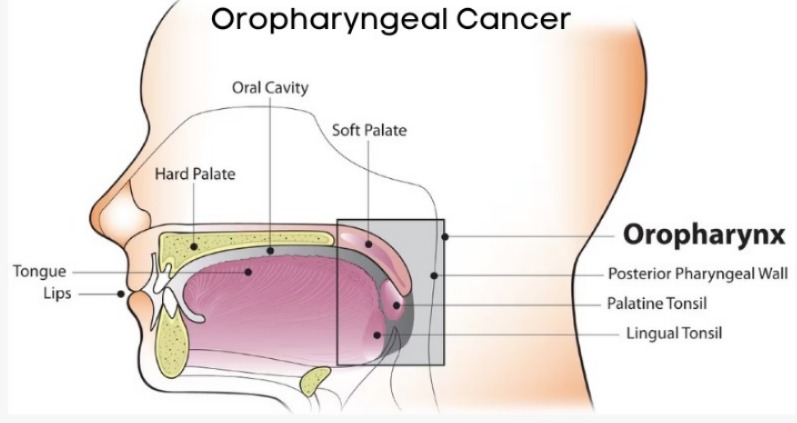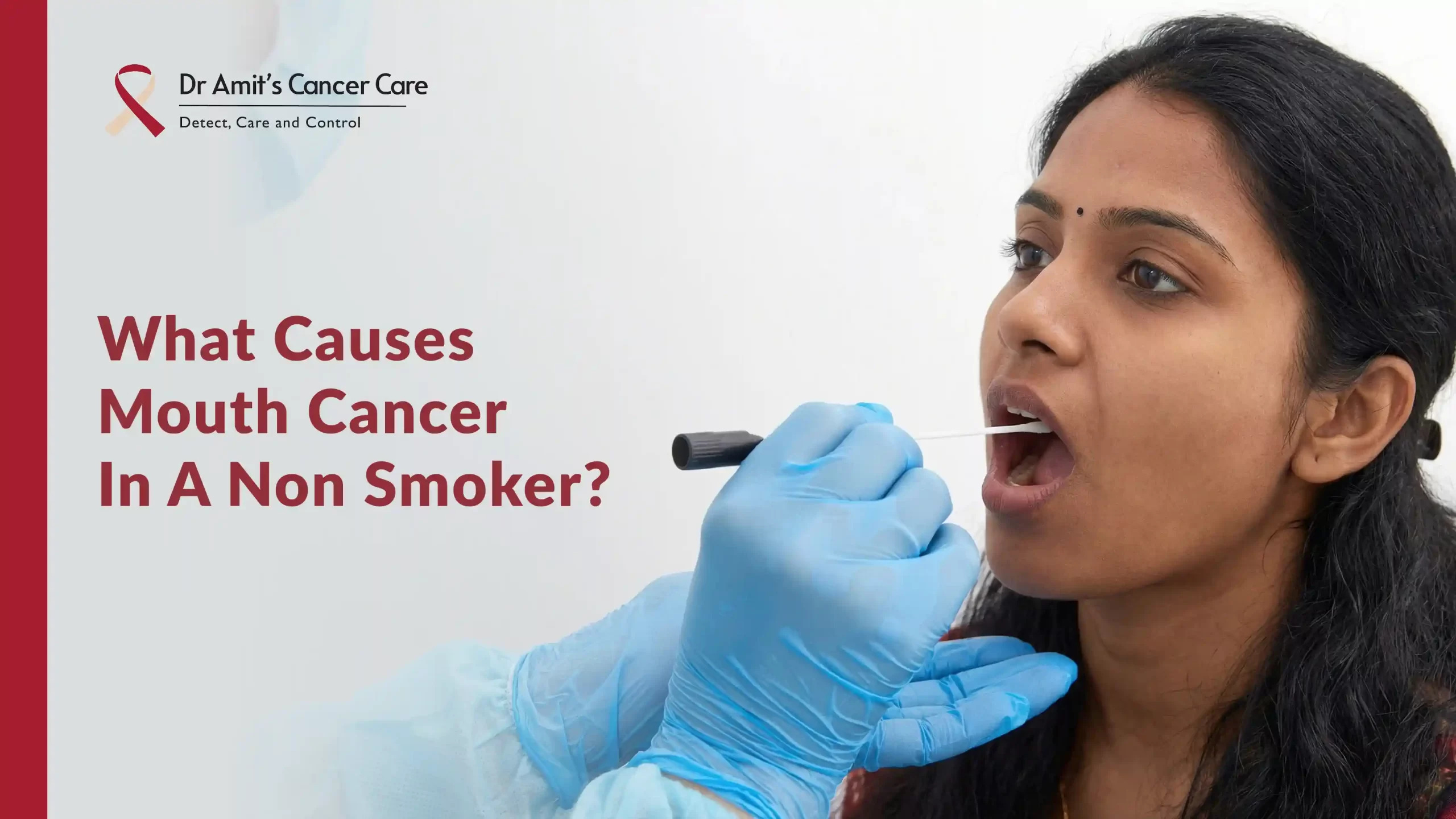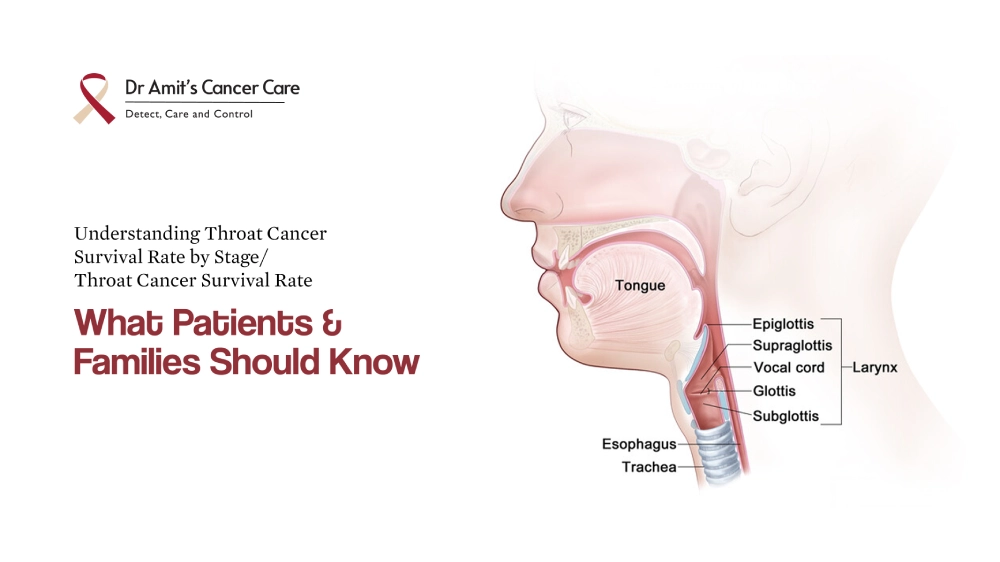Oropharyngeal cancer is a type of head and neck cancer that starts in the oropharynx, which includes the base of the tongue, tonsils, soft palate, and throat walls. The number of cases has increased in recent years, largely due to human papillomavirus (HPV). In Mumbai and globally, surgery remains one of the main treatments for this cancer, alongside radiation and chemotherapy. This guide explores the surgical treatment options available, their outcomes, and considerations for selecting the best approach, highlighting the importance of top oncology care and the best surgeons.
Surgical Treatment Options
1. Transoral Robotic Surgery (TORS)
-Overview TORS is a minimally invasive surgery that uses robotic technology to remove tumors through the mouth, avoiding large incisions. The surgeon operates from a console, controlling robotic arms equipped with surgical tools and a highdefinition 3D camera.
-Advantages: TORS allows precise removal of tumors with minimal damage to nearby tissues, leading to less blood loss, shorter hospital stays, and faster recovery. It also helps preserve speech and swallowing functions better than traditional surgery.
-Outcomes: TORS has shown excellent results for early-stage HPV-positive oropharyngeal cancers, with high rates of complete tumor removal and clear margins. Most patients maintain or quickly regain their ability to swallow and speak, making it a preferred choice for many top surgeons in Mumbai’s leading oncology centers.
2. Transoral Laser Microsurgery (TLM)
-Overview: TLM uses a laser to remove tumors through the mouth, providing a precise way to cut out cancerous tissues. It’s often used for smaller, well-defined tumors.
-Advantages: TLM offers precision cutting with reduced damage to surrounding tissues, preserving functions like speech and swallowing. Patients usually experience shorter hospital stays and quicker recovery times.
-Outcomes: TLM is effective for early-stage oropharyngeal cancers, providing good local control and functional outcomes similar to TORS, especially for smaller, superficial tumors. In Mumbai, this approach is often used by the best surgeons for its balance of effectiveness and patient comfort.
3. Open Surgical Resection
– Overview: Open surgery involves traditional methods with external cuts to access and remove the tumor. This approach is generally used for large or complex tumors that can’t be removed through the mouth.
– Types: Techniques include mandibulotomy (cutting through the jawbone) or pharyngotomy (incisions through the throat).
– Advantages: Open surgery provides wide access to the tumor, allowing for the removal of larger, more advanced tumors not suitable for transoral methods.
– Outcomes: While open surgery can effectively control cancer, it comes with more significant risks, including longer recovery times, higher chances of complications, and potential speech or swallowing problems. Expert oncology teams in Mumbai carefully evaluate patients to determine when this approach is necessary.
4. Neck Dissection
– Overview: Neck dissection is performed to remove lymph nodes when cancer has spread. This procedure is often combined with other surgical treatments for oropharyngeal cancer.
– Types: The extent of dissection varies from selective (removing specific lymph nodes) to modified radical (removing most lymph nodes but sparing some structures) to radical (removing all lymph nodes and other structures like muscles or nerves).
– Outcomes: Neck dissection is crucial for controlling cancer spread and can significantly impact survival rates. The extent of dissection is tailored to minimize harm while effectively treating cancer. The best surgeons in Mumbai use advanced techniques to ensure optimal outcomes with minimal side effects.
Factors Influencing Surgical Approach
Several factors determine the choice of surgery for oropharyngeal cancer, including:
– Tumor Stage and Location: Early-stage tumors are often suitable for TORS or TLM, while advanced tumors may need open surgery.
– HPV Status: HPV-positive tumors usually respond well to minimally invasive surgery, which may reduce the need for additional treatments like radiation or chemotherapy.
– Patient’s Overall Health: Patients with other health issues may benefit from less invasive options to reduce surgical stress and recovery time.
– Desire to Preserve Function: When preserving speech and swallowing is a priority, minimally invasive methods are preferred, often guided by top surgeons specializing in oncology.
Surgical Outcomes
In Mumbai, as in other places, the outcomes of surgical treatments for oropharyngeal cancer are generally positive, particularly for early-stage, HPV-positive cases. Key outcomes include:
– Oncologic Control: High rates of complete tumor removal and clear margins are achievable with TORS and TLM, leading to good local and regional control of the disease.
– Functional Outcomes: Minimally invasive approaches like TORS and TLM offer better functional outcomes, with most patients retaining the ability to speak and swallow without significant long-term issues.
– Survival Rates: Survival rates are higher for HPV-positive patients, especially when treated with minimally invasive surgery followed by necessary additional therapy.
– Quality of Life: Patients who undergo minimally invasive surgery generally experience a better quality of life due to fewer complications, faster recovery, and preserved functions, which are significant considerations for top oncology surgeons in Mumbai.
Conclusion
Surgery plays a crucial role in managing oropharyngeal cancer, with options tailored to the tumor and patient needs. Minimally invasive techniques like TORS and TLM have transformed treatment, offering effective cancer control with minimal impact on patient function and quality of life. In Mumbai, these techniques are increasingly used by the best surgeons to improve outcomes, particularly for those with HPVassociated disease. The choice of surgery should be personalized, considering the tumor characteristics, patient preferences, and overall health to achieve the best results in collaboration with expert oncology care.






